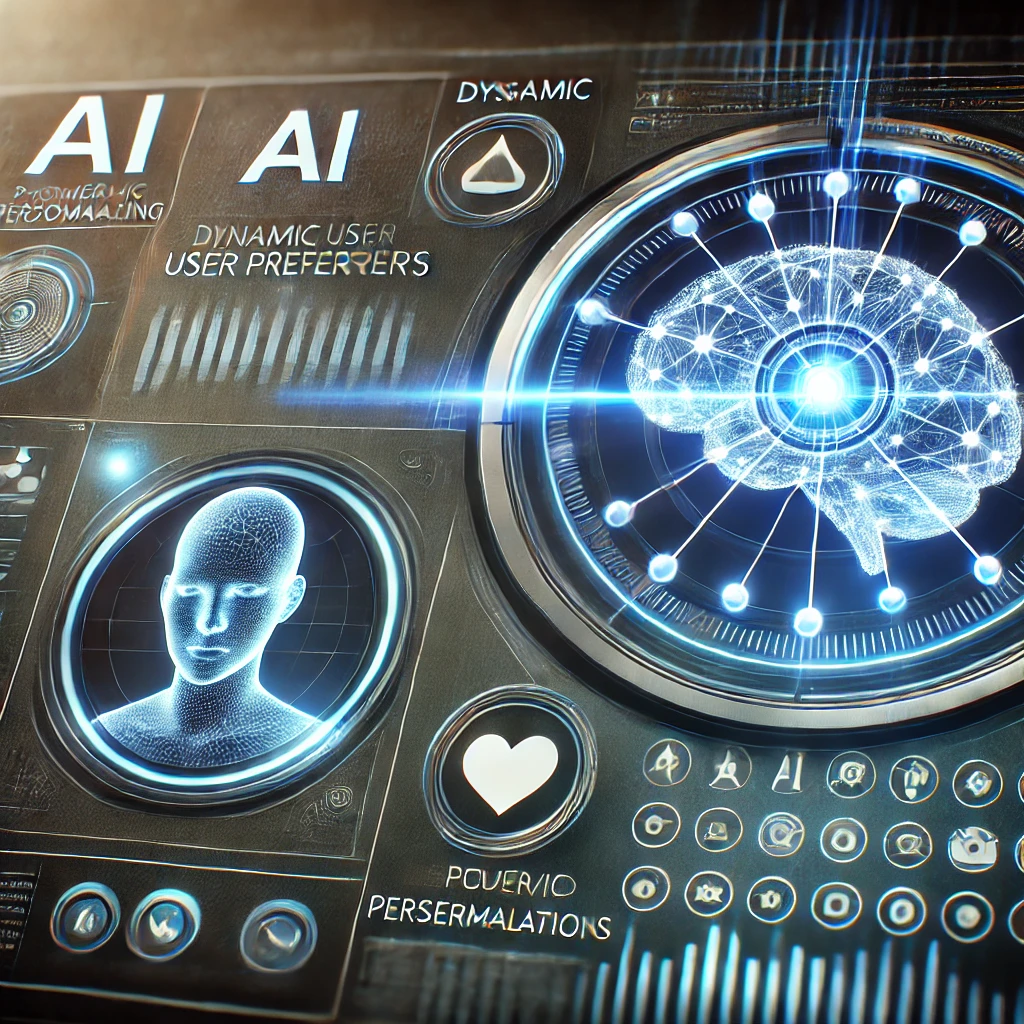AI Powered Personalization is one of the top consumer demands in the digital era, and users anticipate personalized experiences in content streaming, e-commerce, and mobile apps. AI is at the center of enabling businesses to provide personalized experiences through recommendation systems and data-driven insights.

AI Powered Personalization Recommendation Systems
The biggest use of AI for personalization is recommendation systems. These systems utilize data such as user behavior and browsing history to recommend relevant content or products.
For instance, platforms such as Netflix and Spotify use AI algorithms to analyze watching or listening habits, predicting what a user is likely to like next, which increases engagement. Online stores such as Amazon also use AI to suggest products based on previous purchases and search history, making it easy for users to find what they are looking for.
Recommendation engines are so powerful because they learn and adapt. In contrast to static algorithms based on manual categorization, AI systems improve their recommendations with real-time data, which makes them more relevant and precise. This dynamic nature greatly enhances user experience and builds customer loyalty.
Adaptive Interfaces for Seamless Interaction
AI is also revolutionizing user interfaces by making them adaptive and intuitive. While one-size-fits-all interfaces are traditional, AI enables systems to adapt according to individual preferences and requirements.
Today’s mobile apps learn layouts from user interaction. AI-driven UI/UX designs adjust font sizes, recommend shortcuts, or reorder menus to fit individual experiences. For instance, Google’s Android employs AI to anticipate probable next apps and places them on the home screen for convenient access.
Voice assistants such as Siri and Alexa illustrate AI-driven adaptive interfaces. They learn from user queries and speech patterns and improve responses over time to optimize for effectiveness and intuition. This adaptability makes experiences functional, comfortable, and engaging.
Data-Driven Insights for Deeper Personalization
AI is data-driven, and insights are the lifeblood of hyper-personalization. Through insights from user behavior, preferences, and feedback, AI allows businesses to create customized experiences.
For instance, in healthcare, AI provides personalized care plans by analyzing patient history, genetic information, and real-time health information, improving care and treatment effectiveness.
In finance, AI-driven chatbots provide personalized recommendations based on spending behavior, investment history, and risk tolerance, ensuring context-specific recommendations instead of generic ones.
Marketers utilize AI insights for targeted advertising. Instead of irrelevant promotions, AI aligns content with user interests and activity. Sites such as Facebook and Google Ads employ machine learning to learn about interactions, providing more resonant ads and improved conversion rates.
Challenges and Ethical Concerns
Personalization through AI is beneficial but also poses challenges and ethical concerns. Data privacy is on the radar because AI requires large datasets of personal data. Companies need to obtain user consent, be transparent, and have data protection to ensure trust.
Bias in AI software is also a concern. Inadequate diversity in training data may perpetuate stereotypes or leave out groups. These biases must be addressed through ongoing monitoring and optimization of AI systems.
Over-personalization may be intrusive and cause users discomfort if they feel AI knows too much about them. The right balance between privacy and personalization is the secret to a great experience.
The Future of AI in Personalization
Personalization through AI is changing with the growth in deep learning, natural language processing, and predictive analytics. The future could bring hyper-personalized virtual assistants that can predict user needs.
Augmented and virtual reality (AR/VR) will also be powered by AI, offering immersive experiences based on personal taste, for instance, a virtual fashion assistant suggesting outfits in a 3D fitting room.
As AI technology improves, companies that embrace personalization will thrive by creating outstanding user experiences. Ethical AI development and responsible data use must be prioritized, however, to create benefits for companies and consumers alike.
Conclusion
AI has revolutionized customized user experiences using recommendation engines, adaptive user interfaces, and analytics. For entertainment and healthcare, AI personalization improves user engagement and happiness. However, companies need to address ethical concerns in safeguarding user privacy. As AI continues to progress, customized experiences will be more intelligent and user-centric.
